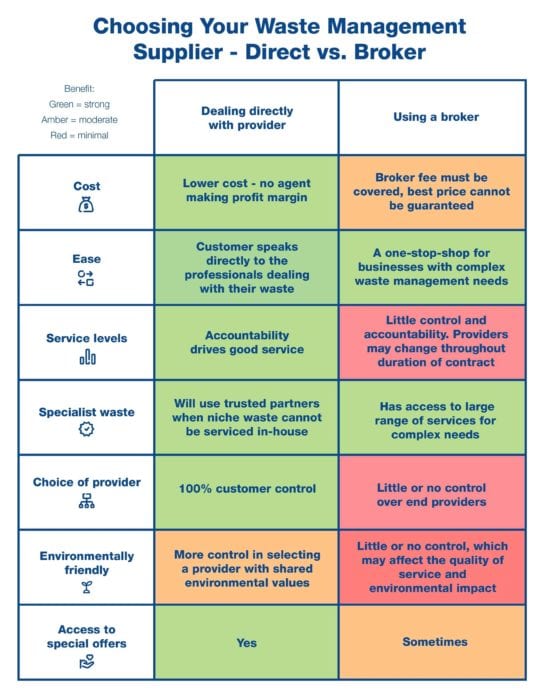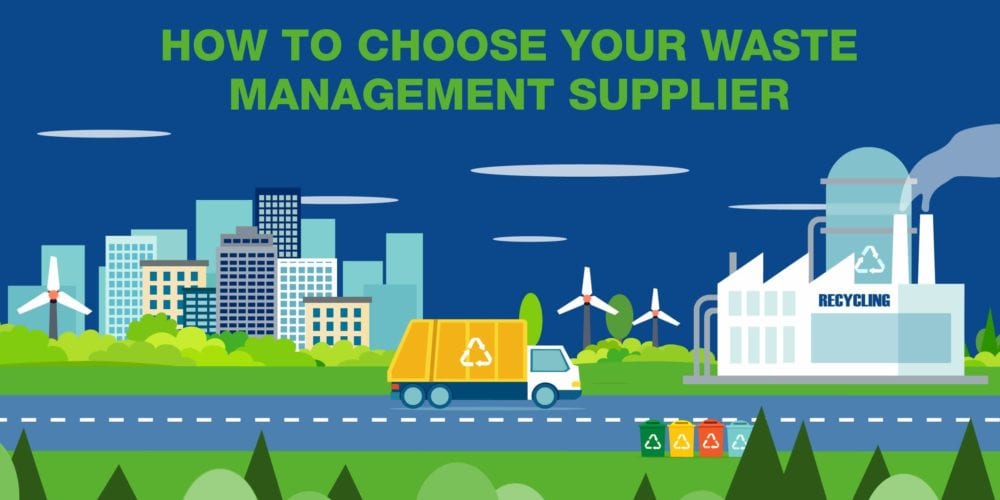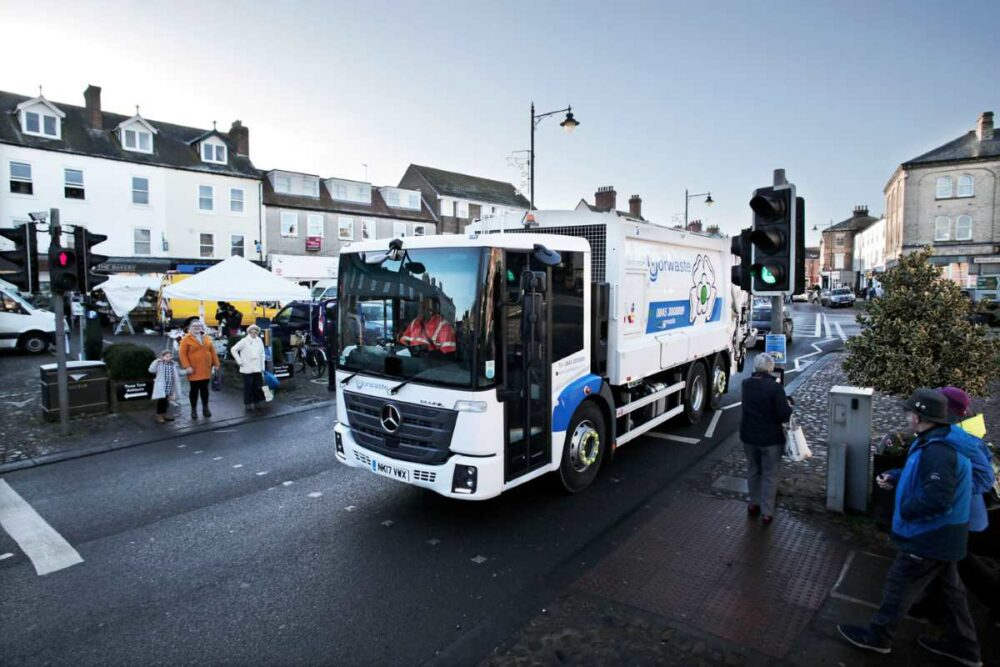How to choose the right waste management service company for you
When it comes to commercial waste management services, every business deserves a smooth, efficient, environmentally-friendly and cost-effective service. With many companies experiencing the ongoing effects of the pandemic, these things matter even more, so we’ve created this impartial guide to help all organisations – large and small – make the right choices when selecting or changing their waste management service provider.
There are essentially two ways for a business to approach its waste disposal needs. You can either contact a waste management broker or work directly with a waste management business. There are pros and cons to both, which we’ve outlined below, but before you even consider these finer details, it’s worth taking into account the size and location/s of your organisation, along with the complexities of your company’s waste management needs and the levels of customer service and assistance required.
Cost is important, but it shouldn’t be the only deciding factor when it comes to finding a solution that ticks all the boxes in terms of compliance, reliability, safety, sustainability and service.
Size matters
A regional waste service provider is ideal for small to mid-sized businesses or large companies with a single location. Dealing directly with a local provider is more likely to offer better value for money, quality of service and local knowledge – with the added benefit of supporting the local economy and environment.
National providers
Working directly with a national provider is ideal for big businesses which operate nationwide, as they have the infrastructure to match. National providers are less suitable for small to mid-sized organisations, who may find they are just a number.
Niche requirements
When a business has a wide variety of, or niche requirements, like hazardous waste, brokers can offer a one-stop-shop in a very busy marketplace, but good deals can be rare to secure through the broker route.
Waste management service providers can often also broker services for an organisation’s more niche requirements, and tend to value service quality over profit margin.
Whichever route is taken, it’s critical your provider has the capabilities to match your business’s needs, such as hazardous waste licences, collections, transfer shipments of waste or waste sample testing.
Some waste management companies provide help with auditing waste levels, improving recycling and saving costs, along with advice on treatment methods, safe handling, compliance or help with meeting sustainable targets, and it’s worth having these conversations right from the start to avoid issues further down the line.
The legalities
It’s worth noting that it’s a customer’s responsibility to ensure their waste is disposed of safely, correctly and responsibly. All organizations wanting to transfer waste must comply with Duty of care and complete a waste transfer note (WTN) which must be kept for two years. A good commercial waste management business will provide their customers with full support in completing their WTN which includes proof of business address, company and registration number of waste provider and type and quality of waste.
When choosing a provider, a business should make sure their waste disposal company or authority has a Waste Carriers Licence and that their waste is only disposed of at authorised facilities. Details should be included on the Environment Agency’s Public Register. A waste management company should provide customers with licences and relevant ISO certifications without even being asked. It is a criminal offence to use an unlicensed waste carrier, but this also gives peace of mind that your business waste won’t end up being fly-tipped.
Businesses also must take into account the waste hierarchy when selecting a commercial waste service to enable them to deliver against their own green goals. Working with a provider that has environmentally responsible and sustainable processes, such as effective recycling, safe waste treatment and disposal, options to reuse and specialist services, like oil or oily rag recycling, is important.
Pros and cons
The table below has been designed to clearly outline the full scope of benefits when using a broker or dealing directly with your waste management services provider.


